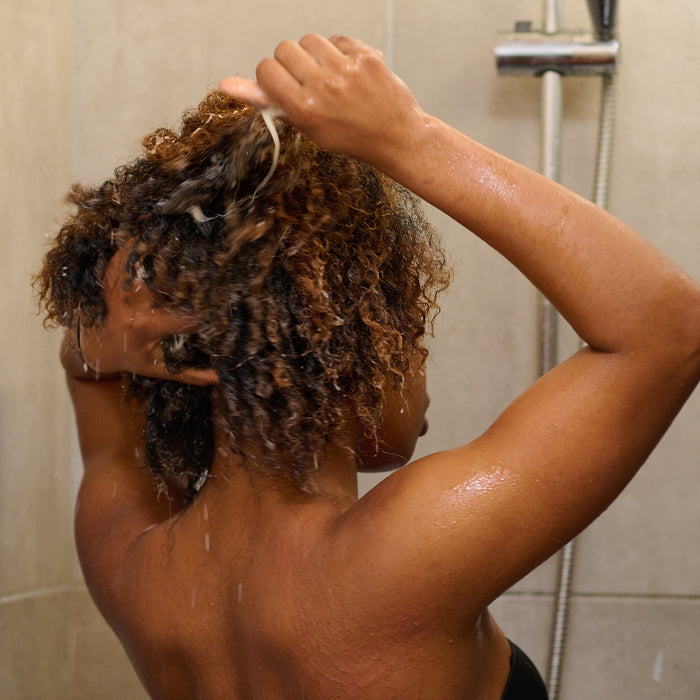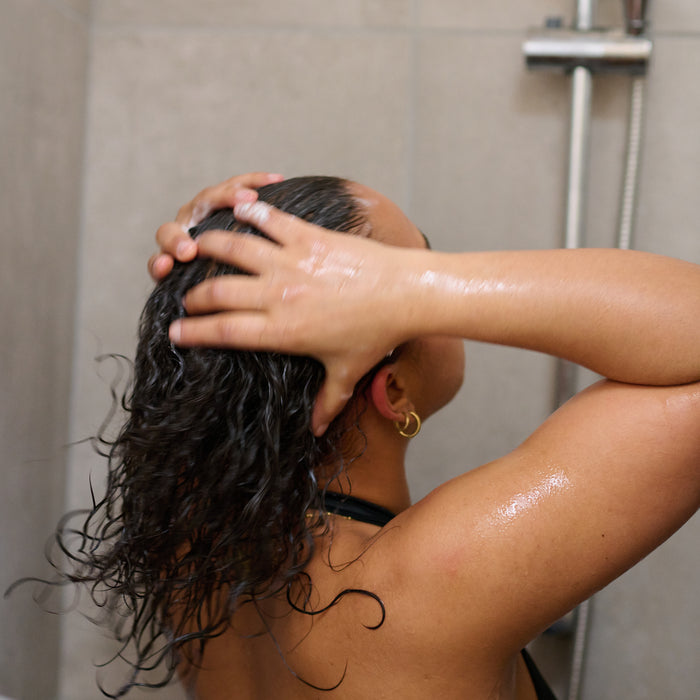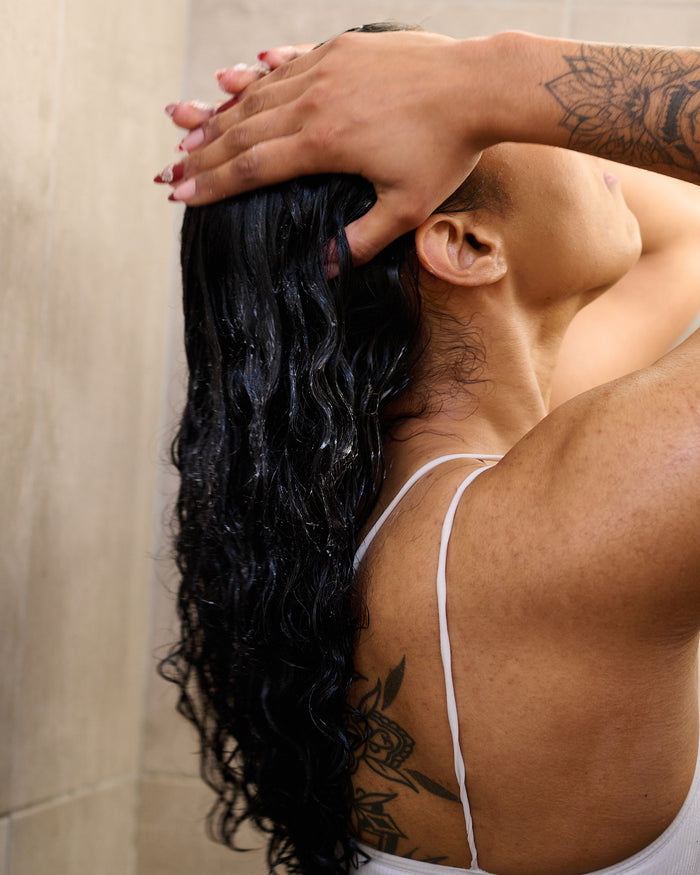





If you're paying attention to the hair products you use on your curly, frizzy, or coily hair , you've probably heard of some controversial ingredients. But why are they considered harmful? Whether it's for hair health , scalp health, or even our overall well-being , some ingredients can do more harm than good. Let's take a look at these ingredients and why they're best avoided in your natural hair care routine .
Parabens are preservatives used to prevent bacterial growth and extend the shelf life of products. The problem: They are suspected of being endocrine disruptors , meaning they could interfere with our hormones .
👉 Why avoid them?
They can cause irritation and itching of the scalp.
They are suspected of having an impact on long-term hormonal health .
There are many alternatives available today for storing products safely.
📌 Look out for on labels: Methylparaben, Propylparaben, Butylparaben, Ethylparaben.
Instead, look for products with natural preservatives , such as essential oils (tea tree, lavender) or vitamin E (tocopherol) .
Often found in some pomades, styling balms or hair oils , mineral oils and petroleum jelly are derived from petroleum . They form an occlusive layer on the hair, which gives an immediate shine effect, but without any real nutritional contribution.
👉 Why avoid them?
They don't really nourish the hair, they just coat it.
They can cause a buildup of residue that weighs down the hair fiber.
They prevent the natural hydration of the hair by blocking water absorption.
📌 To watch out for on the labels: Petrolatum, Paraffinum Liquidum, Mineral Oil.
Choose natural vegetable oils like coconut oil, argan oil or shea butter , which really nourish the hair fiber.
Sulfates are powerful detergents used in many conventional shampoos . Their role is to remove impurities and excess oil, but they are often too harsh for textured hair , which naturally tends to be dry .
👉 Why avoid them?
They strip the scalp of natural oils , which dries out the hair.
They can cause scalp irritation and promote dandruff.
They often leave hair feeling rough and dehydrated .
📌 What to look for on labels: Sodium Lauryl Sulfate (SLS), Sodium Laureth Sulfate (SLES), Ammonium Lauryl Sulfate (ALS).
If you want gentler alternatives, choose sulfate-free shampoos with mild surfactants , such as coco-betaine or glucosides (coco-glucoside, decyl-glucoside).
Silicones are often added to conditioners, masks, and styling creams to give hair a smooth, shiny finish. However, on curly and frizzy hair , they create a barrier that prevents moisture from penetrating deep down.
👉 Why avoid them?
They give a false impression of softness while preventing the care products from penetrating well.
In the long term, they cause a buildup of residue that weighs down the hair.
They often require harsh shampoos (with sulfates) to remove them.
📌 Look out for on labels: Dimethicone, Cyclopentasiloxane, Amodimethicone, Trimethicone.
💡 If you're looking for an alternative, opt for treatments based on vegetable oils (jojoba, argan, avocado) or natural butters (shea, mango, cocoa), which really nourish the hair without suffocating it.
Not all alcohols are bad, but some can be very drying for textured hair. They're often found in styling gels, hair sprays, and styling mousses .
👉 Why avoid them?
They dry out hair and can cause frizz .
They weaken the hair fiber and can lead to more breakage .
They irritate the scalp, especially with frequent use.
📌 Look out for on labels: Ethanol, Isopropyl Alcohol, SD Alcohol, Propanol.
Fatty alcohols such as Cetearyl Alcohol or Stearyl Alcohol, on the other hand, are beneficial because they help soften and moisturize hair.
Artificial fragrances and chemical dyes add a nice smell and attractive color to products, but they can also cause allergies and irritations .
👉 Why avoid them?
They can cause allergic reactions on the scalp.
Some contain toxic or carcinogenic substances .
They are useless for the effectiveness of the product and only add irritants .
📌 To look out for on the labels: Fragrance, Parfum, CI + colorant number.
Choose products with natural fragrances , made from essential oils or botanical extracts.
Not all of these ingredients are inherently harmful, but over the long term, they can affect the health of textured hair and scalp . Ideally, you should opt for natural formulas that are free from harsh ingredients and tailored to the specific needs of curly, frizzy, and coily hair .
Want a healthier hair routine? Discover natural products free from controversial ingredients on our site! Your hair will thank you.
Theory is good, practice is better, practice with the right products is the best!